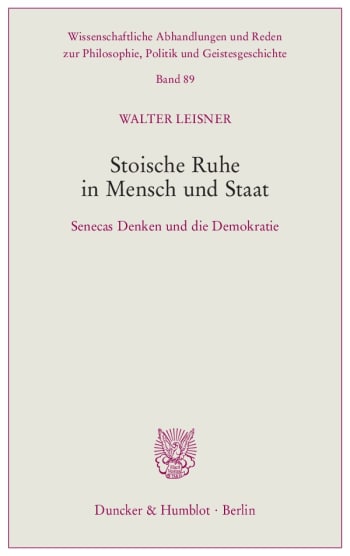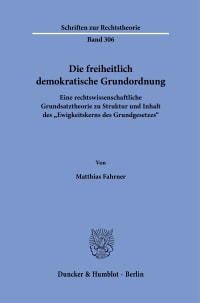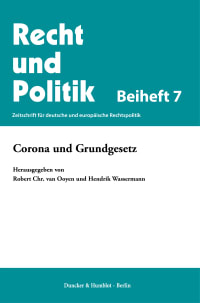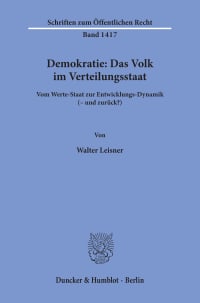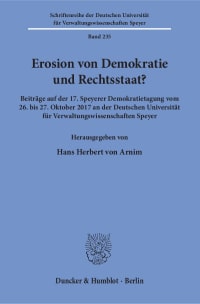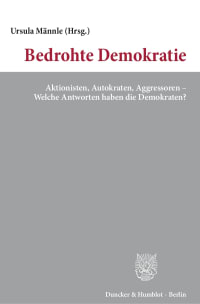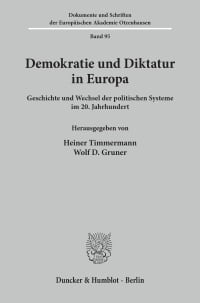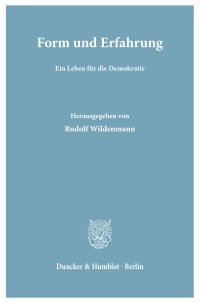Senecas Denken und die Demokratie
Description
»Stoic Serenity in Man and State. Seneca's Philosophy and Democracy«
Democracy is a form of government that is in constant motion: The power of the sovereign people is constantly exercised in the democratic development of politics. But this order has/had the opportunity to continue into a limitless future only within a legal static, in the past above all in traditions. However, constitutional institutional theory faces problems today when it comes to capturing democratic legal contents, general state theory since the Weimar period. Ancient philosophy has always offered help to democracy in the form of political philosophy. The political philosophy of Seneca has been the focus of attention since the Renaissance. It must be rediscovered as a guide; here, knowledge derives from ethics, not from metaphysics. It aspires to the ›quiet‹ state: in an individualistic freedom, in its peace in human and state – far from the state. Possession can mean danger, but property gives peace when it brings forth the giving, benevolent state. Seneca developed a ›death culture‹, for humans and the state. He offers the reader of today consulting in state philosophy.
Overview
A. Einleitung: »Dynamik« und »Ruhe« – Eine Grundfrage der Demokratie
Demokratie: Staatsform in Bewegung – Staatsrechtliche Statik-Vorbilder der Vergangenheit – Demokratischer Entwicklungszustand der Gegenwart – Staatsrechtliche Institutionenlehren: Kein Weg zur Erfassung demokratischer Dynamik – Antike Philosophie als Staatsphilosophie der Demokratie
B. Senecas Stoa: Staatsrechtliche Inhalte in geistesgeschichtlicher Nähe zur Gegenwart
Seneca als »Referenz für Stoa und Staatsrecht« – Grundgedanken der Stoa – Exkurs: Stoa und Christentum – Staatsrecht, Demokratie, Grundgesetz – und Stoa: Themenbehandlung in Schwerpunktvergleichen
C. Stoische (Grund-)Überzeugungen und Demokratische (Grund-)Entscheidungen: Berührungen – Spannungen – Gegensätze
Individualismus – Erregung, Bewegung, Dynamik – oder Ruhe, in Mensch und Staat? – Staatsferne – Religion: In Mensch und Staat – Besitz als Gefahr – Eigentum als Ruhe? – Der »Gütige Staat« der Stoa – von der Menschen- und Staatskunst des Gebens – Tod: Ewige Ruhe für Mensch und Staat (?)
D. Ausblick. Senecas Stoisches Denken: Nicht »die« demokratische Staatsphilosophie, aber eine Sinnerfüllung von ihr
»Gemischte Staatsform« – »Gemischte Staatsphilosophie«? – Demokratisches Staatsrecht: Zwischen Mehrheitsentscheid und stoischer Regierungs-Beratung
E. Ergebnisse – Kurzfassung
